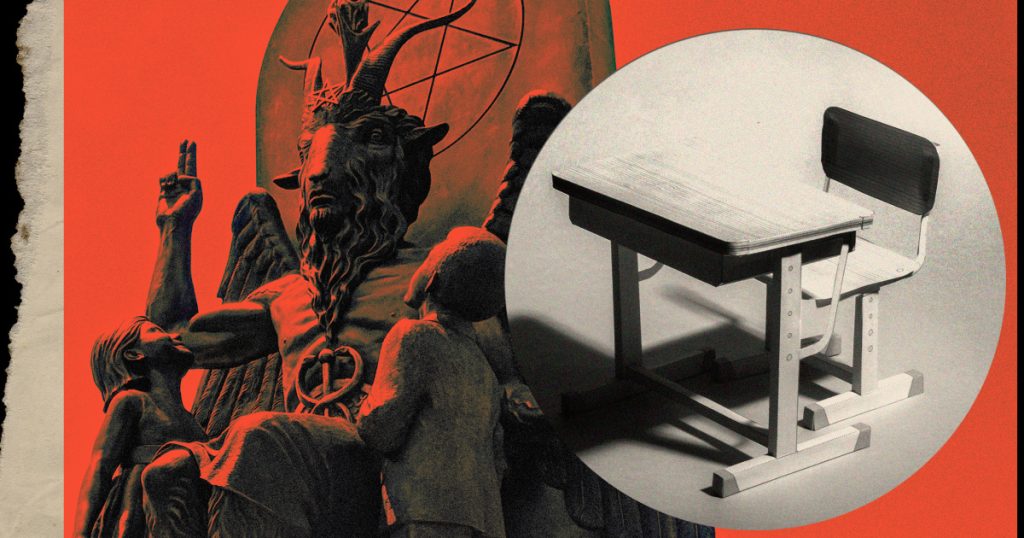The Satanic Temple, a nontheistic religious and political activist group, believes in reason, empathy, and the pursuit of knowledge. While it doesn’t worship Satan in a traditional sense, it uses the symbol of Satan as a representation of the Eternal Rebel against arbitrary authority. Despite starting with a humorous or satirical element, the group has grown significantly in the past decade, with hundreds of members across the country. However, this growth has also brought about increased hostility from those who oppose their beliefs, leading to incidents of vandalism and threats against members.
The rise in interest in joining the Satanic Temple in recent years coincides with a decrease in the number of self-identified Christians in the United States, as well as a growing influence of right-wing activists pushing for conservative Christian doctrines in public policy and schools. As a result, the Satanic Temple has become a beacon for those who fear Christian nationalism and see the group as a way to push back against it. Debates over the role of religion in schools have intensified, with some states proposing bills to appoint chaplains in districts, further fueling the conflict between religious groups and secular organizations like the Satanic Temple.
Conservative proponents of chaplaincy programs in schools have been vocal about preventing the Satanic Temple from infiltrating educational institutions. However, legal experts caution against dismissing the group, as their strategy of entering spaces designated for other religions has proven effective in the past. For example, the Temple successfully started After School Satan Clubs in schools that already had Christian-based groups, leading to a legal victory when challenged in court. The Temple argues that excluding their religious identity from public accommodations goes against the law, and school districts that attempt to do so will likely face legal consequences.
The Satanic Temple’s efforts to challenge the dominance of Christian values in public spaces have sparked controversy and backlash from conservative groups and politicians. Incidents of vandalism, threats, and attempted violence against the Temple and its members highlight the intensity of the opposition they face. Despite the challenges, the Temple remains committed to advocating for reason, empathy, and knowledge while challenging religious supremacy and the politicization of Christianity in American society.
As debates over the separation of church and state continue to unfold, the Satanic Temple finds itself at the center of a broader cultural struggle over the role of religion in public life. By using legal strategies to assert their rights and challenge discriminatory practices, the Temple seeks to promote a more inclusive and diverse society where different religious beliefs are respected. While the group’s provocative activities and imagery may stir controversy, they ultimately serve as a reminder of the importance of upholding the principles of religious freedom and equality for all individuals, regardless of their beliefs.













